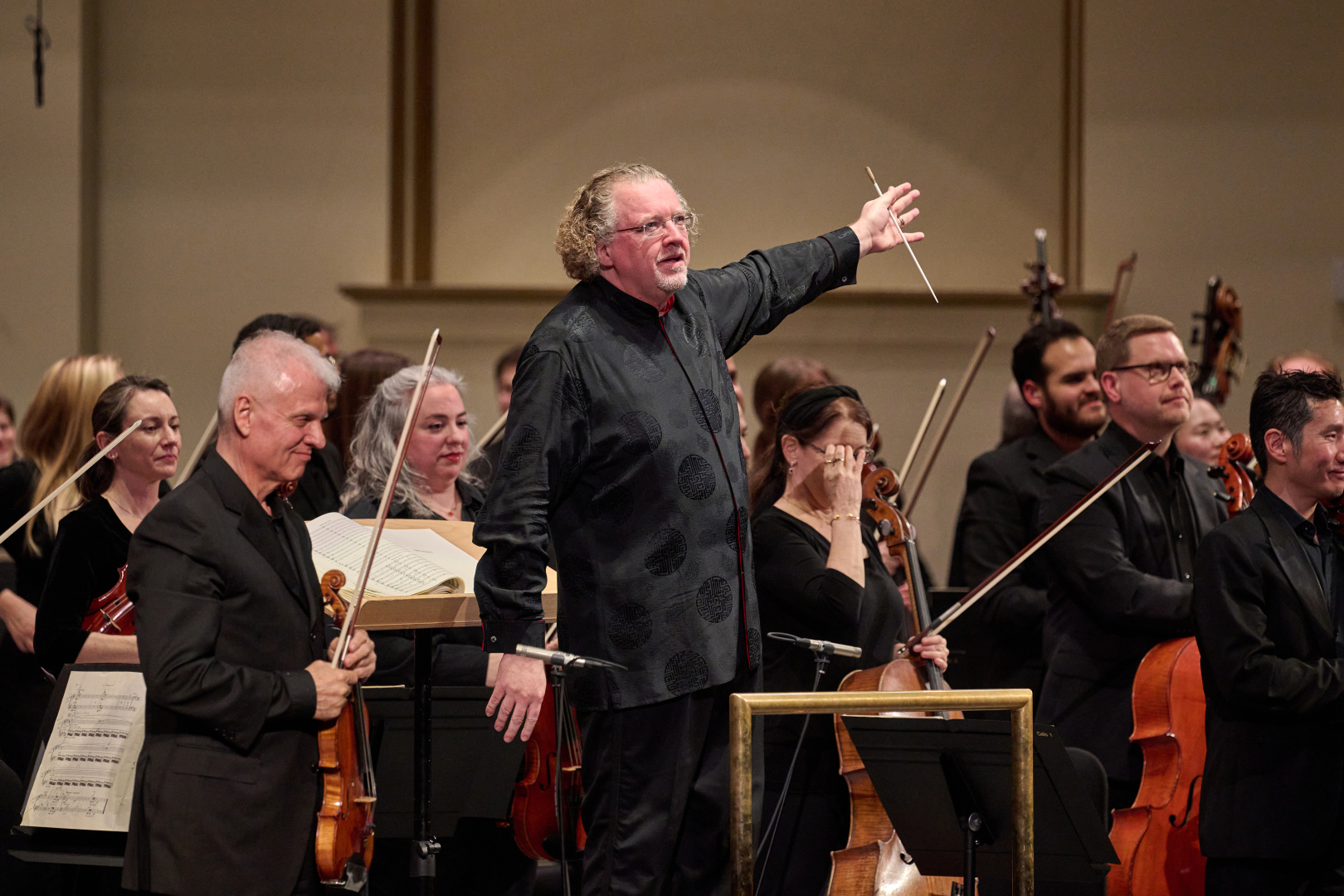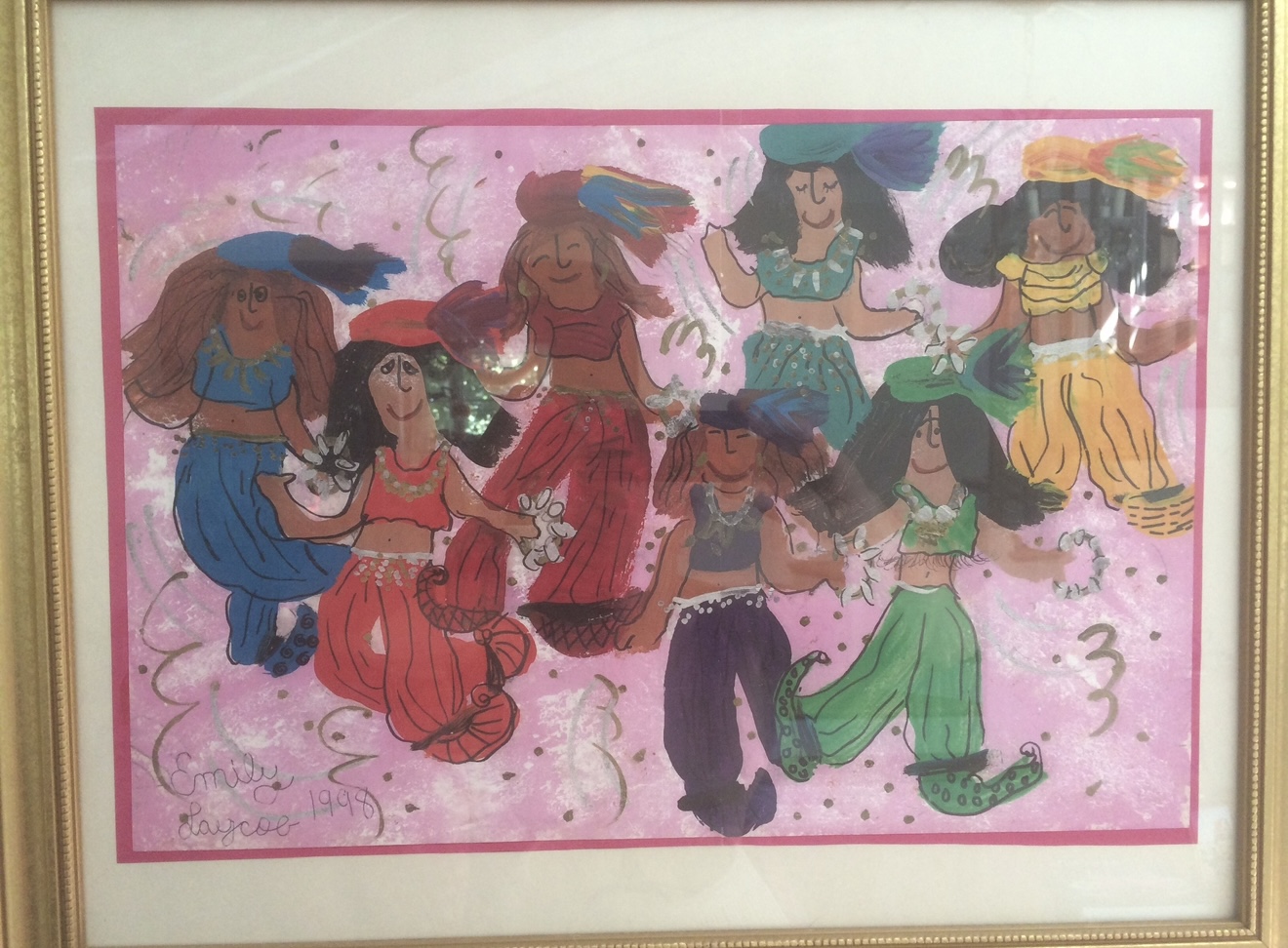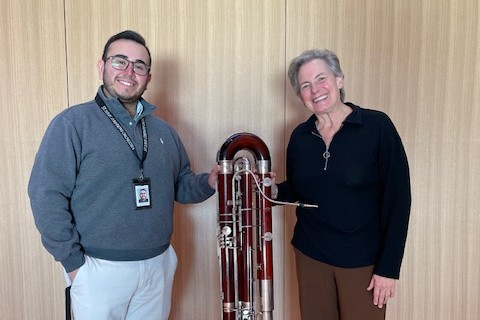Good Reverberations: The SLSO’s impact on music in St. Louis
By Iain Shaw
In the time since Joseph Otten founded the St. Louis Choral Society (later to become the St. Louis Symphony Orchestra) in 1880, the St. Louis region has been home to countless musical innovators and outstanding generational talents, from Scott Joplin, Josephine Baker, and Miles Davis to Chuck Berry, Tina Turner, and Nelly. Across each of those eras, the SLSO has been a beacon for artistic excellence, music education, and innovation in St. Louis.
Stéphane Denève, The Joseph and Emily Rauh Pulitzer Music Director of the SLSO since 2018, is emphatic about the SLSO’s vital role in the St. Louis community.
“Our fantastic musicians perpetuate the artistic excellence that has been at the core of this orchestra throughout its long history,” Denève said. “We are ardently passionate and enthusiastic about fostering a thriving musical culture in our city as well as in our region, and my wish, our mission, is to create unforgettable musical experiences that are warmly welcoming, inclusive and accessible to everyone in our community.”
Hitting the high notes
As the second-oldest professional orchestra in the United States, the SLSO laid down a marker: St. Louis would be a classical music city. It wasn’t ever just that, of course, but by the mid-20th century music directors like Max Zach and Vladimir Golschmann had established the SLSO as one of America’s finest orchestras.
The orchestra’s prolific recording output with the Vox label during Golschmann’s 27 years as Music Director, from 1931 to 1958, raised the SLSO’s profile considerably.
“They became quite well known as a recording orchestra,” said SLSO Conductor Laureate Leonard Slatkin (Music Director 1979-1996), whose father, Felix, served as Assistant Concertmaster under the French-born Golschmann.
Throughout its history, the SLSO has brought some of the most accomplished musicians, conductors, and composers of their era to St. Louis. That list includes names like: Leonard Bernstein; Renée Fleming; Hilary Hahn; Yo-Yo Ma; Leontyne Price; Sergei Prokofiev; Sergei Rachmaninoff; and many more.
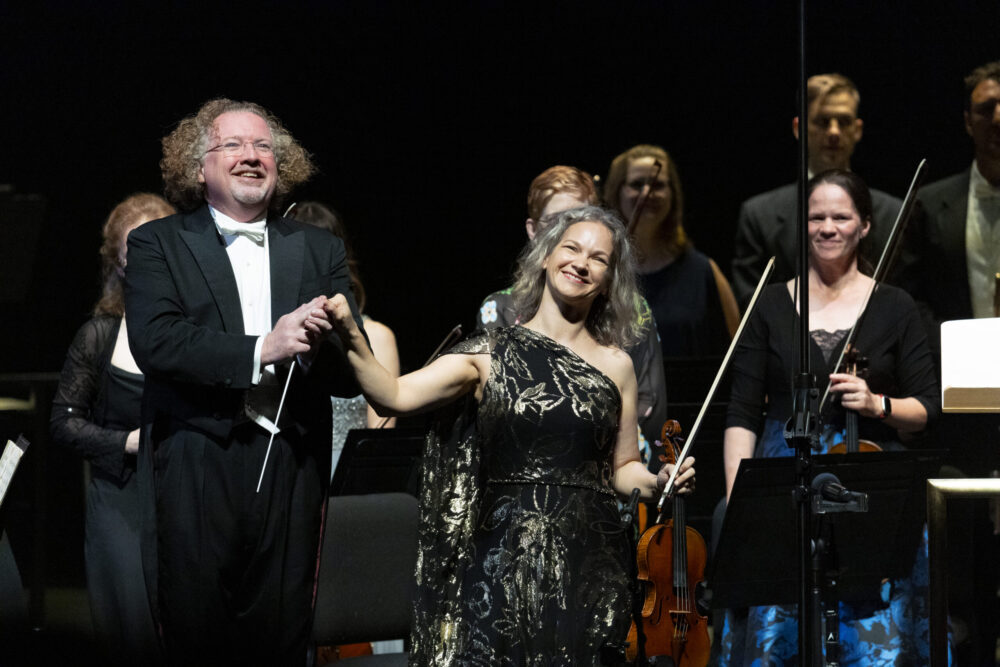
Tours and award wins have burnished the SLSO’s reputation further. The orchestra has won nine Grammy Awards to date, receiving 60 nominations. In 1985, Slatkin’s SLSO won the Grammy Award for Best Classical Orchestra Recording for its recording of Prokofiev’s Symphony No. 5. That same night, Tina Turner took home three Grammy Awards, including Record of the Year. It was a good time for St. Louis musicians. Those award wins were sandwiched between Chuck Berry’s Lifetime Achievement Award at the 1984 Grammy Awards, and Berry’s 1986 induction into the Rock & Roll Hall of Fame.
In 1983, Michael Walsh of Time magazine declared the SLSO the second-best orchestra in the country.
“All of a sudden, there was St. Louis in the major news magazine read throughout the world,” Slatkin said. The only disappointment, Slatkin wryly added, was that “we were upset that we weren’t rated as the first.”
An orchestra for all
Younger generations in the St. Louis region have benefitted from the teaching and mentorship of SLSO musicians virtually since the orchestra’s inception. One of the towering figures of jazz, Miles Davis, was taught by Joseph Gustat, the SLSO’s principal trumpeter. Davis sought Gustat out at the recommendation of Elwood Buchanan, a local musician and teacher who had himself been a student of Gustat’s. Today’s SLSO musicians maintain teaching studios that impact dozens of budding musicians, some of whom go on to careers in music.
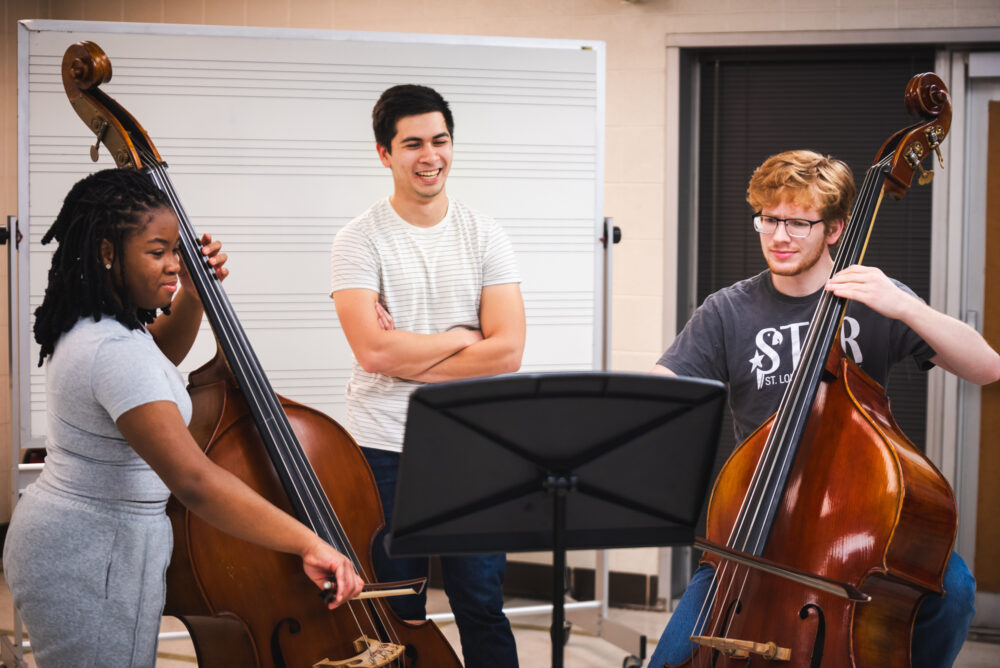
For Slatkin, founding the St. Louis Symphony Youth Orchestra (YO) in 1970 remains one of his proudest achievements.
“It attracts people not just from St. Louis to play,” Slatkin said. “They come from all over.”
Today, the SLSO’s community and education programs, such as Peer to Peer, create spaces where young people from communities historically underrepresented in classical music feel welcomed, valued, and inspired.
Bringing the orchestra to new audiences is another way the SLSO serves the community. Denève has introduced new initiatives to do just that, such as the Playlist happy hour concerts and more accessible ticket pricing.
Emerging voices, new horizons
The SLSO has a proud tradition of championing new American music, from Aaron Copland and Samuel Barber to Joan Tower and Christopher Rouse. Under Denève’s leadership, the SLSO has commissioned bold new compositions by diverse voices: James Lee III’s Visions of Cahokia, St. Louis-born Kevin Puts’s Silent Night Elegy and Concerto for Orchestra, and Nina Shekhar’s Accordion Concerto. Since season 2018/19, when Denève served as Music Director designate, living composers have accounted for 21 percent of the works featured in the SLSO’s classical programming. The 2025/26 season will see that figure eclipse 40 percent.
The SLSO’s influence doesn’t stop at classical music.
“We can be flexible and conversant in other genres, whereas most people in other genres can’t be flexible in terms of what we do,” said Slatkin.
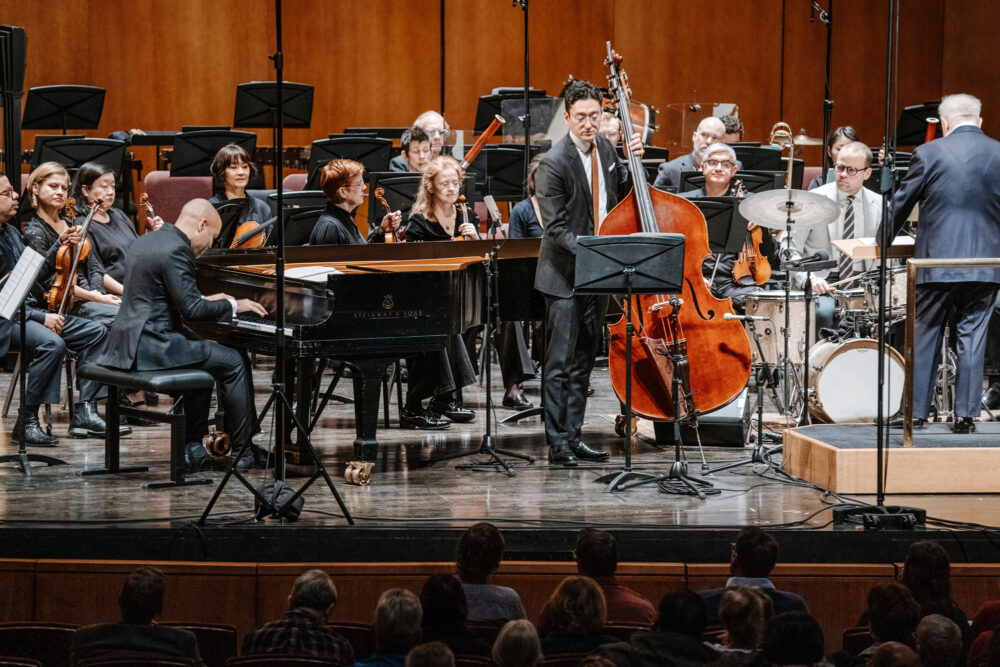
In 1969, Slatkin conducted the SLSO for a performance at Powell Hall with blues guitarist Albert King.
“Nothing was notated, but I knew blues structure, so I was comfortable with it,” Slatkin said. “He loved having the backing of 75 musicians, so it was really fun.”
The orchestra’s performance of Scott Joplin’s The Cascades at Forest Park in 2024 was just one of the many times the SLSO has honored the ragtime pioneer who called St. Louis home. Slatkin led a series of concerts in January 2024 that used George Gershwin’s music as a springboard for exploring jazz, blues, ragtime and other genres. And anyone who witnessed last season’s celebratory show with the Sugarhill Gang and DMC will testify to the orchestra’s capacity for pushing the boundaries of genre and style.
After 145 years, the SLSO retains a vibrant role in St. Louis music culture. “You place [the success of an orchestra] on what it produces, how it reaches the soul of people. How it touches people,” Slatkin said. “When words fail, we have music.”
Iain Shaw is the SLSO’s Content Manager.
